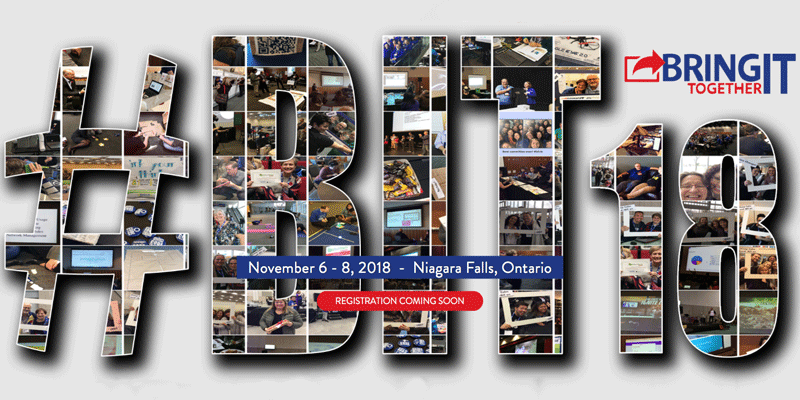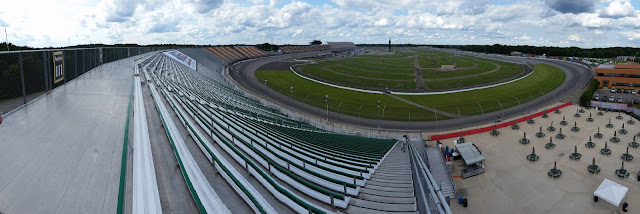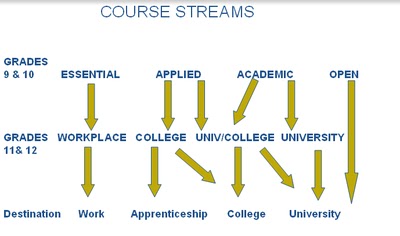It’s taken me until Sunday to be able to talk normally again after week one of face to face teaching in a pandemic. I’ve said it before and I’ll say it again: our board has done an incredible job of charting a path through this poorly planned and funded return to school during a medical emergency, but this has still been one of the worst weeks of my teaching career and not because of all the barriers to teaching.
Top of list are the mandatory medical grade face masks I’m told we have to wear (though the Ministry says, “All staff in schools must wear masks, with reasonable exceptions for medical conditions”). With a head circumference well beyond the human average, these masks are too small for me and leave me at the end of each day with marks on my face, sinuses and ears. My head is so big we had to bring my son in for testing for encephalitis because he got my big head. The specialist immediately said everything was ok when he saw me and realized big heads run in the family. There is nothing worse than being atypical in a pandemic when every system contracts to only suit the average (that’s a theme).
In addition to not fitting my big head, these masks are very restrictive in terms of breathing, especially if you’re working in a poorly ventilated south facing classroom that hits thirty plus degrees celsius on even a cool day when it has 30 or so computers and twenty people in it. Being a tech shop I’m also moving equipment around. In setting up the lab I moved over two thousand pounds of computer parts into place. Being required to wear a mask that’s too small and restrictive while doing physical work in a hot room had me seeing stars multiple times this week. The Ministry states that reasonable exceptions are allowed but everywhere I turned this week (union, admin, online) told me to just wear the damned mask. My biggest anxiety is returning to another week of feeling like I’m being waterboarded by someone who doesn’t know what they’re doing.
I have a history of sinus issues. My sinuses are so atypical the specialist who did my deviated septum surgery two years ago (so much blood!) had never seen anything like them and was forwarding them on to researchers. I can breath much better after the surgery, but wearing a high filtration medical quality mask like that for six hours a day means I resort to mouth breathing almost constantly while wearing it, so I leave school every day with a sore throat and inflamed sinuses. When I expressed this I was told to just wear the mask like everyone else. My wife is severely immune compromised and I come home every day to immediately put my clothes in the washer and take a scalding shower. The last thing I want to do is contract this but not being able to breath properly while having to talk more loudly through a mask is destroying me. There are sports filtration masks I’d be willing to purchase myself but all I keep getting told is to shut up and wear the mask.
Being the only person wearing a medical grade mask in a room of 16 grade nines wearing everything from homemade cloth masks to bandanas, I’m left wondering at the veracity of this demanding compliance. A number of other staff are also struggling with this one size fits all zero flexibility approach. They’ve told me that they (variously) pull the mask off to get fresh air if they’re short of breath and/or fold the bottom of the mask up or fit it poorly so it lets air in and out, which is like not wearing a mask at all. If the only solution is to wear this thing so poorly that it doesn’t do anything then I think we need to rethink our one-size-fits-all policy.
Beyond the mandatory waterboarding mask, the week went well but mainly because I’m making unsustainable catches at the wall all day every day. All of the IT tech we had in the lab was in the middle of being used when we were shut down at March Break and it was in much worse shape than I realized. I spent most of the week triaging and rapidly repairing broken computers so that grade 9s could use them, which isn’t sustainable. A diving catch is a spectacular thing but if that’s all you’re doing all game you won’t be playing the next week.
I got a really good piece of advice from our spec-ed instructor when I was at Nipissing University for teacher’s college: “your first job is to be ready to come in to work again tomorrow.” This often gets forgotten in the teacher martyr complex and I see people (myself included) throwing themselves into unsustainable situations that end up preventing them from working effectively the next day. This whole week felt like that. Every time I looked for support it wasn’t there and the weight I was carrying got that bit more impossible.
Tuesday was the worst day. After spending all morning trying to get broken tech working (for my classroom and half a dozen other classrooms in the school), and then struggling to get all the grade 9s through safety training because at least two of them are functionally illiterate (which raises interesting questions around the legalities of dragging them through purely text based online safety training) the teacher who was supposed to come in and provide relief saw how busy I was and said, “if you don’t need me I’ll go” instead of showing some initiative while watching me try to be in three places at once.
This is another example of the system checking a box rather than providing actual support. Our union has argued for us to get relieved during our nearly three hour marathon face to face sessions (two times a day, thank-you) and I appreciate that effort, but the teacher coming in isn’t qualified or knowledgeable in my field of study and is little more than a babysitter who can’t even legally oversee hands-on shop work. The week before we were told by admin to just skip our prep/relief and keep working if that’s what we wanted to do, but that is neither sustainable nor compliant with the contract we’ve agreed to. Being asked if they can just leave and take a 45 minute break from giving people breaks while I’m obviously struggling both physically, mentally and emotionally was… (how can I put this professionally?)… aggravating.
Under normal circumstances I’d have sent the two functionally illiterate kids down to resource who would have walked them through the training one on one. I can’t do one on one when I have twenty other grade nines all needing my attention at once and while I’m responsible for safe hands on work with live electricity and tools in a technology class. I can’t send them to resource though because our resource room has been closed and all our spec-ed specialists are now teaching regular classes online. You don’t want to have an IEP or learning challenges during a pandemic, all the spec-ed support has evaporated.
Anytime I’ve asked for someone to assist me with something they’ve reflected it back on me to do. If a student needs special supports it’s entirely on me to do that. If a student doesn’t have digital access at home it’s entirely on me to do that. Towards the end of the week I had board purchasing asking questions about things from last year that I had neither the bandwidth nor knowledge to answer so I just ignored the emails. When you’re drowning you don’t go looking for more water.
If you’re operating an engine it will have an operating range. You work in that range as a balance of efficiency, longevity and performance. There are moments when you might push past the 100% mark in order to get a burst of power, but doing so means you’ve just shortened the life of that engine. The diving catch made by a baseball player is one of those 120% moments where you do something unsustainable to make the catch, but you can’t keep doing that all day every day, it’ll break you.
Even with all the barriers to teaching thrown up by this pandemic and this particular government I had a good week instructionally. I was able to differentiate to different students and pretty much everyone in the class was able to do something they’d never done before by the end of the week (build their own PC). That one on one work with students learning their strengths and developing skills is what I love about my work, and I’m good at it.
I’m unable to do IT again next week with a new class because we don’t have any working tech left, so I’m doing backflips this weekend trying to work out how to teach electronics in two places in two different ways at once. Our two cohort system means I’m teaching remotely to one cohort while I’m teaching face to face with the other all day every day (they flip). It’s twice as much prep but as you’ve read above we don’t really have any prep time. They gave me a teacher who isn’t qualified and doesn’t have any background in my subject to cover the online learning, but that’s just more people I have to direct. I asked if we could just collapse my class into a single morning cohort then I could be the afternoon online teacher. The class is only 22 so it wouldn’t be huge and it means I’m not buried alive and trying to be in two places at once. You can guess the answer: it wouldn’t look good. They don’t want any pictures of full classes out there. It makes sense pedagogically and in terms of staff work load, and with appropriate safety precautions there would be minimum risk of pandemic transmission, but if you don’t have optics on your side in a pandemic you have nothing. I’m not the only teacher who asked for that.
In addition to trying to generate a week of prep every day both remotely and face to face, I’m also trying to get more IT tech in so I can do that unit with my second class. Getting parts in a pandemic is challenging. I’m hoping I can work it out and RCTO has been fantastic in getting back to me and making it happen, but that’s just another of those unsustainable balls I’m juggling that’s up in the air somewhere.
I can manage the avalanche of prep, but doing it while in physical distress all day because of an inflexible mask policy means I’m not going to finish this semester on my feet. I have to find a way to engineer a solution to this because no one around me will. The most frustrating part is that the solution is obvious but in a pandemic flexibility and individual needs are the first thing we burn.
from Blogger https://ift.tt/2FUnHsl
via IFTTT
























































